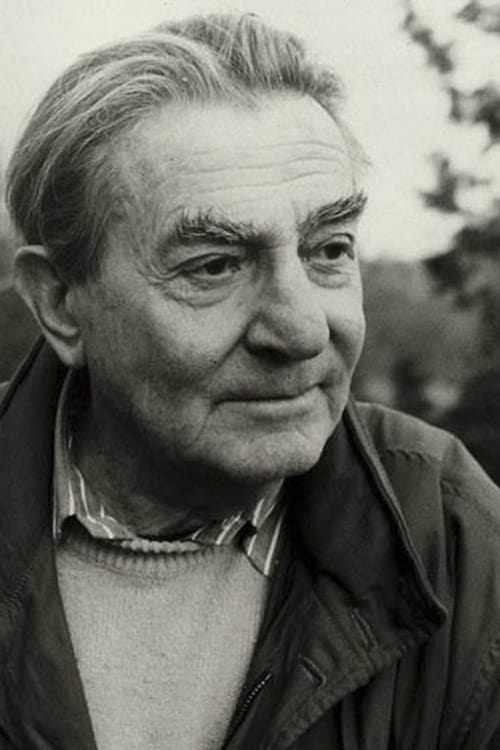
Self
This documentary consists mainly of archive interviews of Jean Cocteau, and it features interesting contributions by Jean Marais and especially Jean-Luc Godard, who discusses Cocteau's foray into cinema. The film documents all the artistic media explored by a man who defined himself, first and foremost, as a poet.

Self - Interviewee
More than fifty years after its making, we return to the set of Jean Cocteau's 1946 film "La Belle et la Bete" (Beauty and the Beast). Included are interviews with the the lead actors, the cinematographer, along with excerpts read from the director's journal.

Self

A primer on French film director Marcel Carne's career through interviews with critics and close creative collaborators.
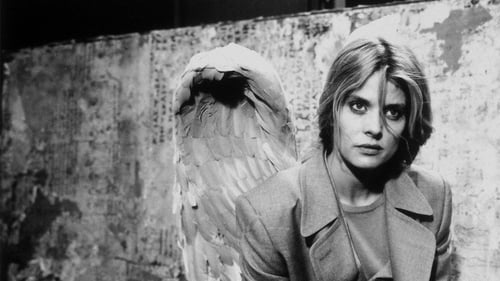
Captain
Damiel is now married to Marion, runs the pizzeria “Da Angelo” and the two have a child. The solitarily remaining angel Cassiel is more and more dissatisfied with his destiny as a mere observer of human life and finally decides to take the great leap. As Karl Engel he soon gets into a dubious milieu and finds himself as the assistant of the German American Baker, who makes his money with shady arms deals and sends films east in exchange for weapons. Cassiel’s adventure turns into a “thriller” when he decides to put a stop to Baker’s game.

Director of Photography
Danny Cornish, a sort of stateless man who arranges art exhibits, is called from Tel Aviv to Paris with the news that a great uncle has died, in Birobidjan, the autonomous Jewish zone in Russia, leaving him a valuable art collection and the hand of a huge sculpture of a Golem. The uncle's will instructs Danny to find the rest of the statue, so Danny, who speaks no Russian, embarks on a trip that takes him (and the Golem's hand) to Moscow, St. Petersburg, and Siberia, fumbling with hotel clerks, taxi drivers, and bureaucrats, following leads, and making discoveries about myth, story telling, art, and hope.
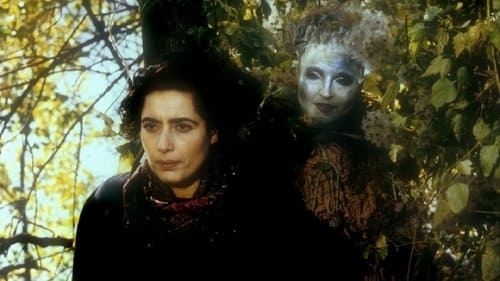
Director of Photography
An allegory of the Golem, a Jewish mythical creature personifying displacement and exile, this film tells the story of a woman (similar to the biblical Ruth) and her sisters, who are forced into exile after the death of their husbands. It is set in 1990s Paris, where the director was living in self-imposed exile following the ban on his 1982 documentary in Israel. The recurring theme of the film is migrations and unrooting, like the legendary Golem.

Self
This film essay explores the strange case of G.W. Pabst, the Austrian filmmaker who was considered a giant of early cinema before his reputation went behind a cloud.

Director of Photography
A short film, shot in a long take, interpreted, drawn and directed by Jean-Louis Bompoint, with the precious collaboration of Hélène Bromberg; but especially Henri Alekan, who was the Director of Photography of the film.

Self

Director of Photography
With the feel of experimental film, Gitai mixes storytelling, readers' theater, cityscapes (usually seen from moving trains), and desolate landscapes to mediate on the act of creation. What if a golem were fashioned out of dirt, much like Adam, and came to life? The film imagines it, in the desert and in Moscow. Interspersed are stories of a 14th-century Tuscan artist's creation of a tower that plays music when the wind blows, of a film director, and of Jeremiah and Sirat. In what ways is making a movie like creating a golem?

Director of Photography
A landmark work of symbolistic imagery. The words that the filmmakers speak offscreen are imaginary conversation with Cézanne quoted from a critique by Joachim Gasquet. An exchange of memories spanning over 250 years interweaves everything from the philosophy of Empedocles to excerpts from the film Madame Bovary, to extant paintings by Cézanne, to the buildings of the artists’ village at Mont Sainte-Victoire. —ntticc.or.jp

Director of Photography
Two interconnected stories in the 1930s, one set in Berlin, the other in Palestine: Mania Vilbouchevich Shohat (1880-1961), called Tania, a Russian Jew and revolutionary, goes from Minsk to Palestine to live on a collective. She promotes feminism and laments a shift in the men from self-defense to aggression. Her friend, Else Lasker-Schuler (1869 - 1945), expressionist poet and German Jew, is in Berlin, writing, caring for her son, watching Hitler's movement take power. She goes to Jerusalem and imagines a park for Arab and Jew. Her poems, voiced from within, capture her experience. The film meditates on the violence at the root of Israel's birth: of the Nazis and of the Zionists.

Self
An episode of the show "Océaniques " about the craft and lighting techniques of the legendary French cinematographer Henri Alekan

Director of Photography
Two angels, Damiel and Cassiel, glide through the streets of Berlin, observing the bustling population, providing invisible rays of hope to the distressed but never interacting with them. When Damiel falls in love with lonely trapeze artist Marion, the angel longs to experience life in the physical world, and finds -- with some words of wisdom from actor Peter Falk -- that it might be possible for him to take human form.

Director of Photography
Ahasverus, king of Persia and Media, puts aside Vashti and makes Esther his queen, choosing her among maidens in a kingdom stretching from India to Ethiopia. Esther, using information from Mordecai, her uncle and patron, saves the king from assassination. Haman, the king's favorite, is miffed when Mordecai won't bow to him, so he orders death to all Jews in the kingdom, under the seal of the king. Esther pleads for her people, and Mordecai is in turn given license to make his own edict under the king's seal. Mordecai loses sight of his original intention, and bloody murder ensues. Purim annually celebrates the story. At the end of the film, the actors comment.
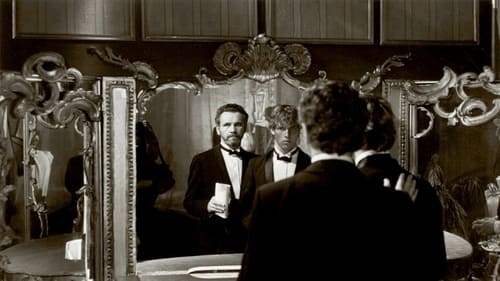
Director of Photography
Film professor Michael falls in love with one of his students and is confronted with his pupil's father, with whom he had an affair over 15 years ago. This unexpected meeting abruptly overturns the lives of all the characters. When the tutor decides to undertake a planned trip to London, not with the son but with the father, he is once again forced to choose; this time between his wife and his friend.

Director of Photography
Jonathan Demme directed "The Perfect Kiss" video, which is unlike any other New Order clip. Set in the band's practice room, it simply depicts the band playing the song from beginning to end.

Self
Short film showing cinematographer Henri Alekan, director Raúl Ruiz and actress Olimpia Carlisi at work creating sublime visual effects of the sort seen in City of Pirates.

Director of Photography
An old man is kidnapped. His interrogation uncovers the biography of a mass murderer: The 80 years old man was a SS leader and responsible for the killing of thousands of people in Russia. He also "invented" an evil technique of eliminating political prisoners: the manipulated suicide. Thomas Harlan reconstructs the history of a bureaucratic murderer, he also develops a direct connection between the Nationalsocialism and the treatment of prisoners of the RAF terrorists in the Stuttgart isolation prison. Robert Kramer filmed the shooting of Harlan's Wundkanal: Notre Nazi documents a social experiment in which the children of Nazis and of victims meet a real culprit. The reality seems to be stronger that the fiction in Harlan's film. (Edition Filmmuseum)

N°330
Reel 34 of Gérard Courant’s on-going Cinematon series.

Director of Photography
In Our Nazi, we are plunged into a situation we barely, and only slowly, understand: the filming of Thomas Harlan’s experimental feature Wundkanal (1984), in which true-life ex-SS officer Alfred Filbert, now very old, is ‘put on trial’ for the camera, without him suspecting what is to come or why he is really there. Kramer’s confronting film is an essay about the sticky complicity of everyone present at this event, each bringing their own history, their own political ideology, their own desires to take revenge, to seek redemption or compassion, or just to put their heads down and ‘get the job done’ professionally, or (in the case of Filbert) to be a star, a part of the magnificent, magical, seductive world of cinema, even if it kills him.

Self
In Our Nazi, we are plunged into a situation we barely, and only slowly, understand: the filming of Thomas Harlan’s experimental feature Wundkanal (1984), in which true-life ex-SS officer Alfred Filbert, now very old, is ‘put on trial’ for the camera, without him suspecting what is to come or why he is really there. Kramer’s confronting film is an essay about the sticky complicity of everyone present at this event, each bringing their own history, their own political ideology, their own desires to take revenge, to seek redemption or compassion, or just to put their heads down and ‘get the job done’ professionally, or (in the case of Filbert) to be a star, a part of the magnificent, magical, seductive world of cinema, even if it kills him.

Director of Photography
A fugitive takes refuge in a manor where a blind retired thespian lives.
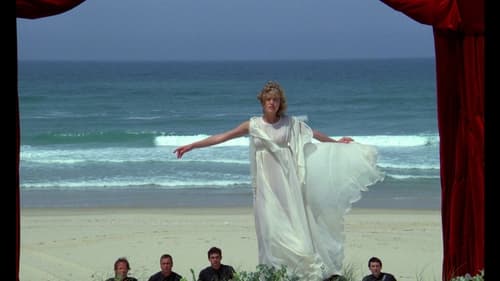
Director of Photography
Walter is told by his boss, Sara, to deliver an urgent letter to Henri de Corinthe. On the way he finds a beautiful woman he had been eying in a nightclub, lying in the road, bound up. He takes her to a villa to get a doctor, and ends up being locked in a bedroom with her. While she is making love to him, he has visions of surrealistic images from René Magritte's paintings. In the morning, the girl, Marie-Ange, has vanished, the villa looks derelict, and his neck is bleeding. Was it all just a nightmare?

Director of Photography
The sexual and social dysfunctional behaviour of the corporate elite are further aggravated when a naive married woman becomes the obsession of two wealthy suitors.
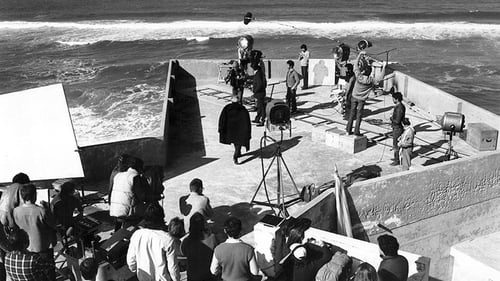
Director of Photography
On location in Portugal, a film crew runs out of film while making their own version of Roger Corman's The Day the World Ended (1956) . The producer is nowhere to be found and director Munro attempts to find him in hopes of being able to finish the film.
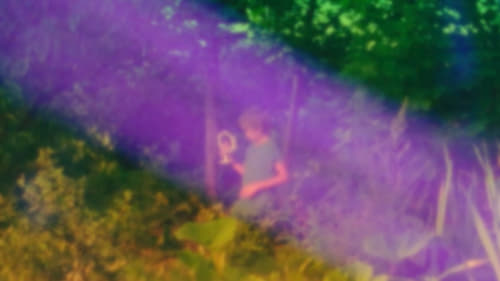
Director of Photography
A parody of anthropology, linguistics, and cultural imperialism. The film follows an unlikely team of linguists into the wilds of an ersatz Patagonia to study the last speakers of a dying language. That language apparently consists of a single word, which therefore means everything.
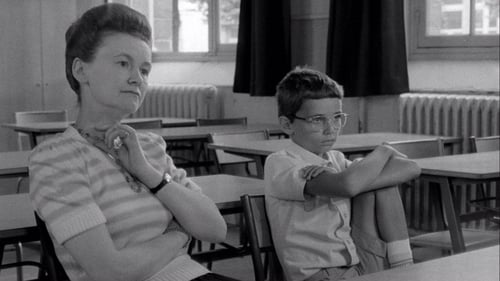
Director of Photography
The child Ernesto doesn't want to go to school any more because, as he says, all he is taught there is things he doesn't know.

Director of Photography
A small group of well-to-do vacationers go on a hiking trip into the woods. Foolishly unprepared to deal with Mother Nature and their situation, they wander around lost for days and weeks, becoming more and more fatigued, hungry, and desperate. A brief encounter with a pair of epicureans on a bridge fails to garner them any of the gluttons' feast due to a language barrier. Eventually their party begins to die, and the survivors ration their meat among them, attaching a religious-type ritual to its dispensation.

Director of Photography
Ruiz on the film: "Les Divisions is a documentary about the Château de Chambord and the title comes from the Divisione of Johannes Scotus (Erigena), the ninth century Irish philosopher (who was a 'realist', although the film is more 'nominalist' in characterization of the castle which presents itself as a representation). I say that it is a representation, since it is neither practical for military purposes (too many doors), nor to live in (too many draughts), but only as pure representation. So for the commentary, I tried to imagine how a Renaissance philosopher would view it in a pastiche of a scholastic or gothic text, then a pastiche of Fichte's Vocation of Man and finally a pastiche of Baudrillard."
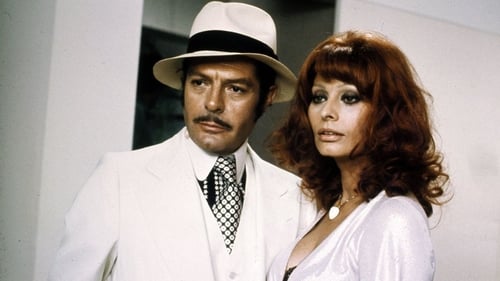
Director of Photography
A happy-go-lucky prostitute gets mixed up with the Mafia.
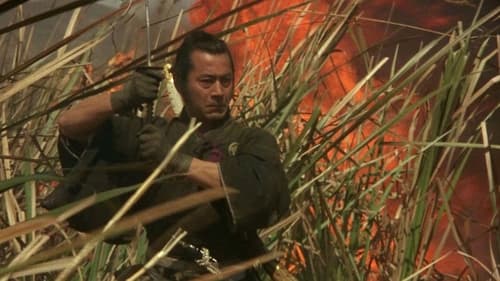
Director of Photography
In 1870, Japanese ambassador Sakaguchi and his entourage travel by train to Washington to deliver a valuable sword to the President of the United States, a gift from the Emperor of Japan. On board the same train are two robbers, Link and Gauche, ready to make their move…
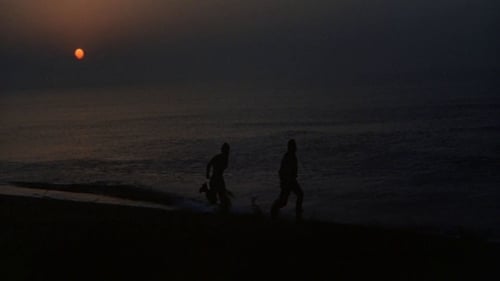
Director of Photography
Two escaped convicts are on the run in an unnamed Latin American country. But everywhere they go, they are followed and hounded by a menacing black helicopter.
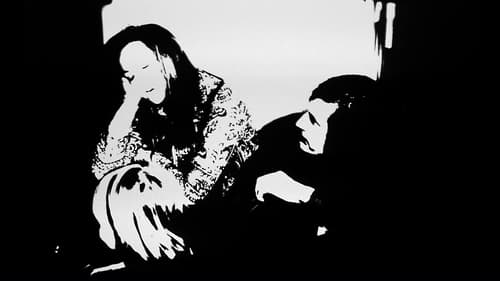
Director of Photography
“FUN AND GAMES (FOR EVERYONE): a pitch black and milky white film shot during one of Olivier Mosset's exhibition openings. A psychedelic game of improvisation joins the Zanzibar group with Salvador Dalí, Barbet Schroeder and Jean Mascolo... the solarized image reminiscent of thick strokes of a paintbrush.” - Philippe Azoury
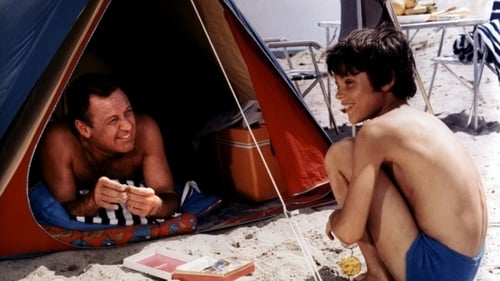
Director of Photography
A French-American millionaire, his girlfriend and his war buddy try to grant his dying son's every wish.

Director of Photography
Maddening and mysterious,with the elements—ocean, wind, rocky terrain—dominating the scenes.
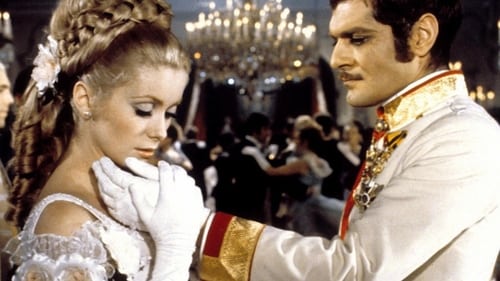
Director of Photography
Crown Prince Rudolf of Austria clashes with his father, Emperor Franz Joseph I of Austria, over implementing progressive policies for their country. Rudolf soon feels he is a man born at the wrong time in a country that doesn't realize the need for social reform. The Prince of Wales, later to become Britain's King Edward VII, provides comic relief. Rudolf finds refuge from a loveless marriage with Princess Stéphanie by taking a mistress, Baroness Maria Vetsera. Their untimely demise at Mayerling, the imperial family's hunting lodge, is cloaked in mystery.
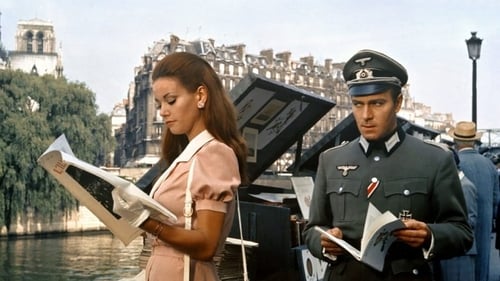
Director of Photography
A safecracker turns double agent during WWII.
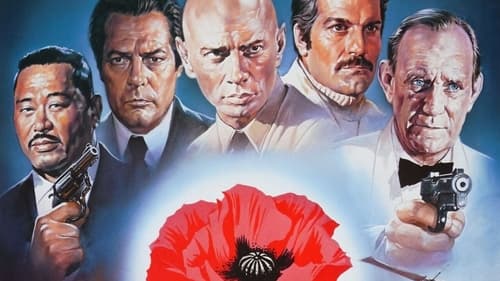
Director of Photography
In this anti-drug film narrated by Grace Kelly, a group of narcotics agents working for the United Nations inject a radioactive compound into a seized shipment of opium at the Afghanistan–Iran border, in the hopes that it will lead them to the main heroin distributor in Europe.
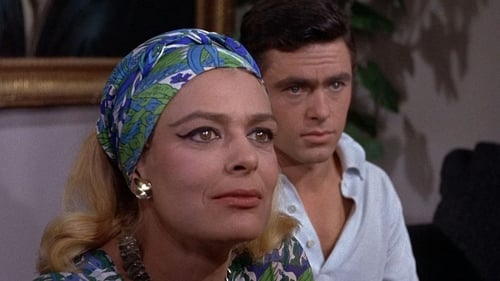
Director of Photography
Arthur Simon Simpson is a small-time crook biding his time in Greece. One of his potential victims turns out to be a gentleman thief planning to steal the emerald-encrusted dagger of the Mehmed II from Istanbul's Topkapi Museum.

Director of Photography
An adaptation of Jan Potocki's The Manuscript Found in Saragossa.
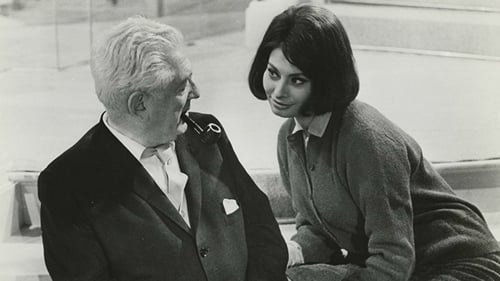
Director of Photography
Immediately after Lisa declares that she is leaving her immature, abusive, but easy-going husband Robert, he is reported dead in a plane crash. Secretly still alive, he convinces her to collect his life insurance, although she knows that it's a bad idea. Lisa must contend with the complications of the scheme, which involve an aggressive suitor, Robert's jealousy, and her own guilt.
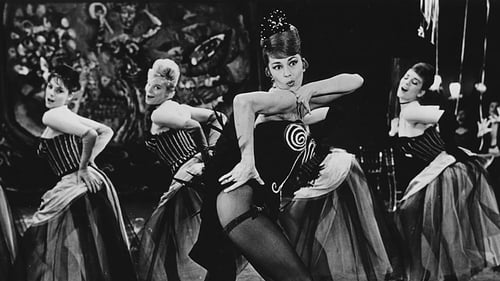
Director of Photography
Lively scenes of Paris, all narrated by Maurice Chevalier, link together four dramatic ballet choreographies by Roland Petit: La Croqueuse de diamants (The Gold Digger), Cyrano de Bergerac, Deuil en 24 heures (A Merry Mourning), and Carmen.
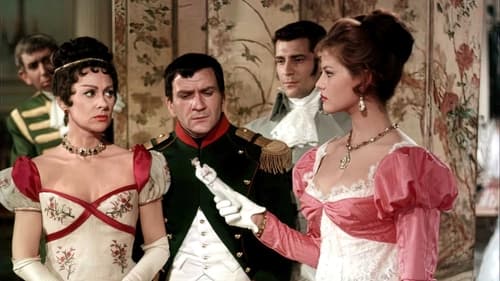
Director of Photography
Napoleon Bonaparte crowns himself emperor and fights the English, Austrians and Russians in 1802.

Director of Photography
Burgundy 1728. Old count Antoine d'Eon is overjoyed. His daughter-in-law has finally given birth to a boy and he will at long last be able to transmit his inheritance to his son Pascal. At least this is what he thinks, for Pascal has concealed from his father the fact that his son was ... a daughter, his eighth daughter! Well, enough is enough and Geneviève has no other choice but become a boy first, then a soldier and even the special envoy of Louis XV, King of France, to Catherine II, the Czarina of Russia.

Director of Photography

Director of Photography
The work of Rodin imagined in the form of a ballet. It is the journey of man in his life, in his loves, until his death. In the second part, it is the fall to hell as Rodin carved it in his "Door of Hell".

Director
The work of Rodin imagined in the form of a ballet. It is the journey of man in his life, in his loves, until his death. In the second part, it is the fall to hell as Rodin carved it in his "Door of Hell".
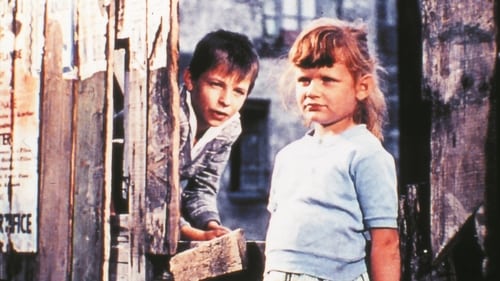
Director of Photography
Come fly with Peter and Nicole and the Chinese wizard on an exciting adventure to the ends of the earth.

Director of Photography

Director of Photography
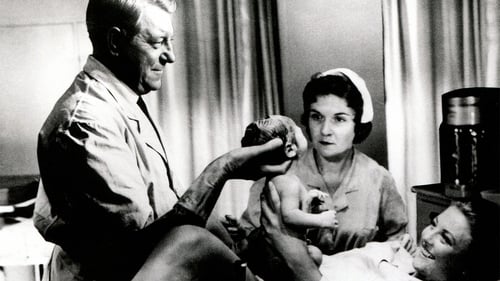
Director of Photography
Le Cas Du Dr. Laurent (The Case of Dr. Laurent) stars Jean Gabin as a Paris-based doctor who tries to spread the gospel of Natural Childbirth. Working in a cloistered rural community, Gabin runs up against the stone walls of fear and prejudice. His theories are proven sound when unwed mother Nicole Courcel gives birth within Gabin's methodology. The childbirth sequence is filmed straight-on with a delicate combination of taste and frankness. Nonetheless, the lurid ad campaign of Cas Du Dr. Laurent sensationalized this sequence all out of proportion.
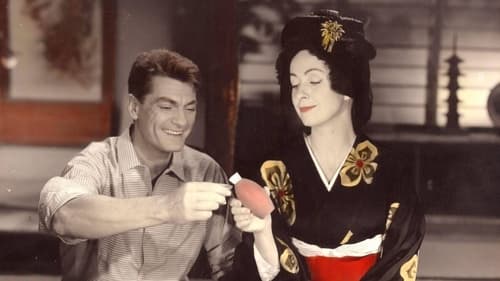
Director of Photography
Pierre Marsac, a French engineer working for the Nagasaki shipbuilding yards, has fallen in love both with Japan and a charming Japanese girl named Noriko. But Françoise Fabre, a French journalist and Pierre's former lover, contacts him while visiting the Land of the Rising Sun. They meet again, find out their love might not be dead. Meanwhile, Pierre gradually becomes estranged from sweet, humble Noriko. One day, a typhoon strikes Nagasaki...

Director of Photography
Philippe Perrin, a young engineer passionate about his work, leads the construction of a huge dam in the High Alps. Like all the men who work on the building site, he gives the best part of himself. Unfortunately, his health deteriorates but he refuses to follow the doctor's orders as well as the advice of Micheline, a young nurse who has fallen in love with him. However, driven by the evolution of his illness, Philippe finally makes up his mind to go down to the valley for a treatment. On the very day of his departure though, a young Arab worker gets killed in a rock crusher...
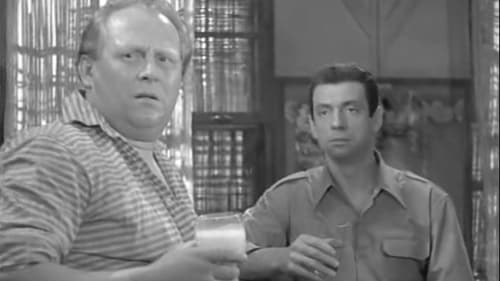
Camera Operator
A good cast smooths over the rough spots of Les Heros sont Fatigues. The scene is the African republic of Liberia, which in this film proves to be a stopping-off point for a number of shady characters. Yves Montand plays a French ex-pilot who becomes involved in a scheme to smuggle stolen diamonds. His cohorts include a Nazi collaborator, a German refugee, and the white mistress of a prominent Liberian. A romance develops between the ex-pilot and the aforementioned mistress. Meanwhile, one of the conspirators (Curt Jurgens) has a last-minute attack of conscience, effectively queering the deal. The steamier romantic passages in Les Heros sont Fatigues had to be trimmed for American consumption.

Director of Photography
A story of the love of Frou-Frou - an actress and singer in the in the beginning of her career.
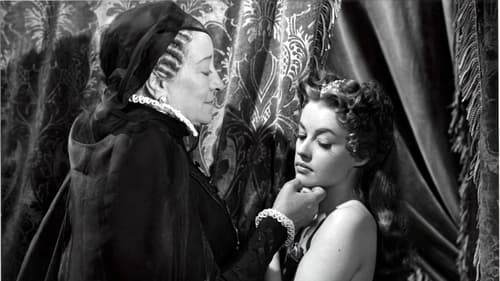
Director of Photography

Director of Photography
When Mario, a bad boy, is released from prison, he plans to live honestly with his wife Geneviève. But the latter has not waited for him and Mario, out of spite, accepts to work as a tout for Mr. Charlie, the boss of a white slave trade gang. His first assignment consists in seducing Michèle, a Montmartre nightclub singer and hostess, into signing a contract for Tangier. The young woman, however, who does this job only to support her young sister Danièle, falls for him and he for her. From then on Mario, without betraying himself, does his utmost to save Michèle -and Danièle for that matter - from the clutches of the gang...
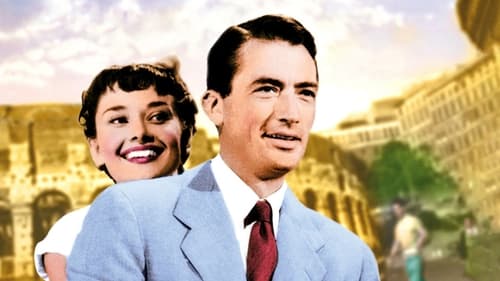
Director of Photography
Overwhelmed by her suffocating schedule, touring European princess Ann takes off for a night while in Rome. When a sedative she took from her doctor kicks in, however, she falls asleep on a park bench and is found by an American reporter, Joe Bradley, who takes her back to his apartment for safety. At work the next morning, Joe finds out Ann's regal identity and bets his editor he can get exclusive interview with her, but romance soon gets in the way.
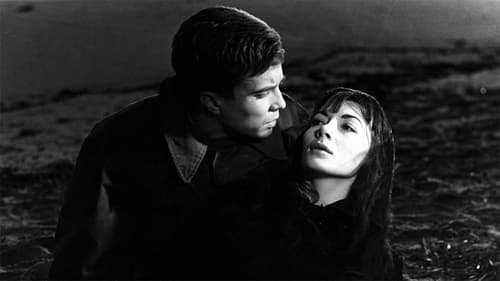
Director of Photography
After a novice nun learns of the sudden death of her parents, she leaves the convent to manage the family business and look after her teenage sister. Both of them fall prey to a womanizing mechanic with psychopathic tendencies.
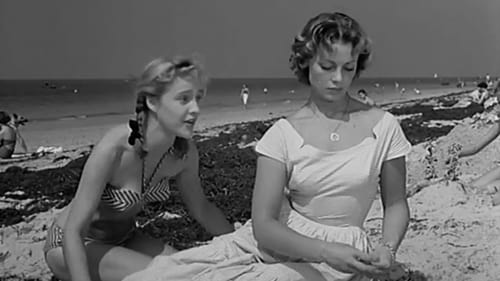
Director of Photography
Julietta is a French comedy comedy romance film from 1953, directed by Marc Allégret, written by Françoise Giroud, starring Dany Robin and Jean Marais. Film was based on a novel of Louise de Vilmorin.

Director of Photography
The short stories of Guy de Maupassant enjoyed a renaissance in the early 1950s, thanks in great part to the Max Ophuls production Le Plaisir. In Trois Femmes, three De Maupassant stories are dramatized, each conveying the central theme of women falling in love. In the first, a black female carnival entertainer causes an uproar when she falls in love with a white soldier. In the second, a young bride is pressured into having a baby to collect a huge inheritance. And in the final episode, a pregnant girl is "adopted" and protected by a small circle of friends. In standard De Maupassant fashion, each of the three stories in Trois Femmes is capped by a surprise twist.
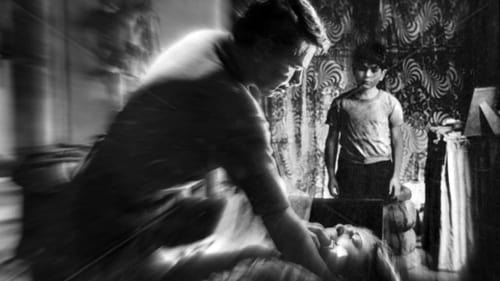
Priest on Bicycle
A down-and-out crook on the lam befriends a young street urchin, in an Italian port city. At first amused that the boy is a sneak thief, he tries to deflects the kid from a life of crime. Tipped off by a woman anxious to collect the reward for him (who is wanted for murder), the police pursue the two lost souls.

Director of Photography
A down-and-out crook on the lam befriends a young street urchin, in an Italian port city. At first amused that the boy is a sneak thief, he tries to deflects the kid from a life of crime. Tipped off by a woman anxious to collect the reward for him (who is wanted for murder), the police pursue the two lost souls.
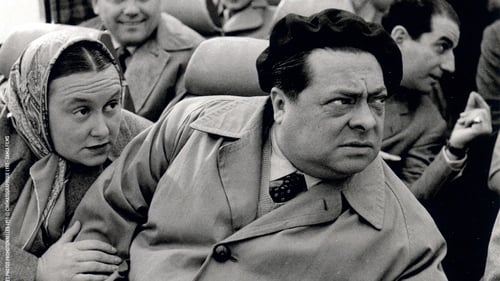
Director of Photography
A group of Italian soccer fans arrive in Paris for a match, but most of them go their separate ways to explore the sights, have a bit of an adventure, and maybe even find some romance.
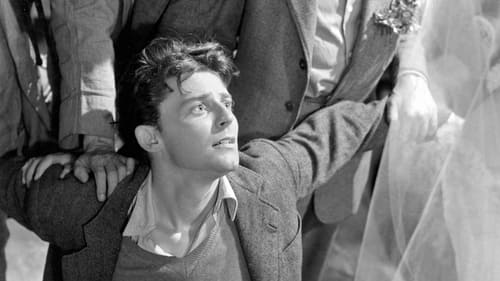
Camera Operator
Michel has stolen from his employer, Mr Bellanger, for the love of Juliette. He is now in jail. One night, while sleeping in his cell, he wakes up all of a sudden, the gates open and he finds himself in a strange village where all the inhabitants have lost their memory. There, meets Juliette again who seems to agree to marry a powerful man, who might well be Bluebeard...

Director of Photography
Maurice Vallier, nicknamed "Ma Pomme"(which means "myself" in slang), is a cheerful man, well aware that money does not make happiness and who, of all things, prices freedom. Which is why he has become a tramp and he has never regretted his choice of life. Things go smoothly until the day he inherits a huge amount of money. He first refuses it but changes his mind when he realizes that thanks to the inheritance he can help others. Even more enticing is the fact that he must share the big money with a charming air hostess. However once he deems he has done enough good he gives up the money left and resumes his old lifestyle singing along "Ma pomme c'est moi, j'suis plus heureux qu'un roi..."
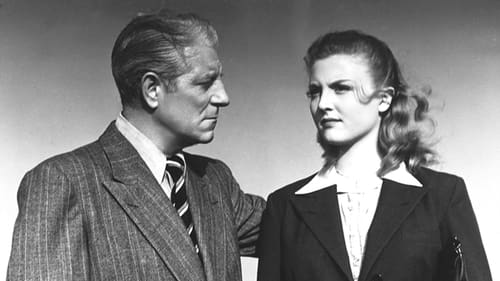
Director of Photography
Henri Chatelard is well in his forties, owns a restaurant and a cinema in the city, and appreciate women. When he meets Marie, a 18ish stronghead who just lost her father in a small fishermen village, it is not clear who is the hunter and who is the prey.

Director of Photography
Angelo, a glass-blower from Murano, and Georgia Maglia, the pretty daughter of a fallen fascist magistrate, are chosen to be the stand-ins for the stars of a film version of "Romeo and Juliet" being shot on location in Venice and Verona. It is not long before they fall in love and their romance parallels that of Shakespeare's timeless heroes. Indeed their union is threatened by the schemings of Raffaele, the Maglia family's dubious tout...

Director of Photography
During the cold and rainy off-season a man arrives in a seaside town and, giving his name only as Pierre, checks into the only hotel which remains open. His arrival arouses curiosity and a degree of suspicion, as people note that he appears to know the area, yet gives no explanation for his presence at that bleak time of year in the dead-end town.
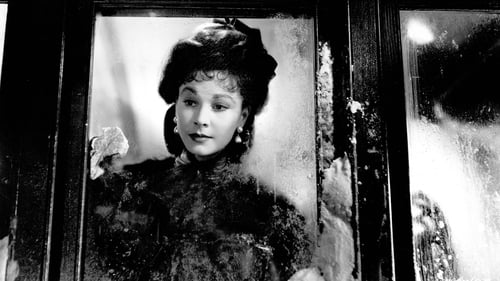
Director of Photography
Stefan and Dolly Oblonsky have had a spat and Stefan has asked his sister, Anna Karenina, to come down to Moscow to help mend the rift. Anna's companion on the train from St. Petersburg is Countess Vronsky who is met at the Moscow station by her son. Col. Vronsky looks very dashing in his uniform and it's love at first sight when he looks at Anna and their eyes meet.
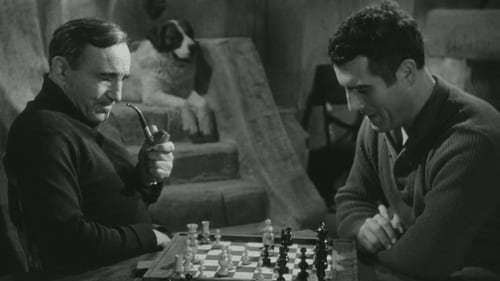
Director of Photography
Laurent meets Louvaine and brings her back to his island.
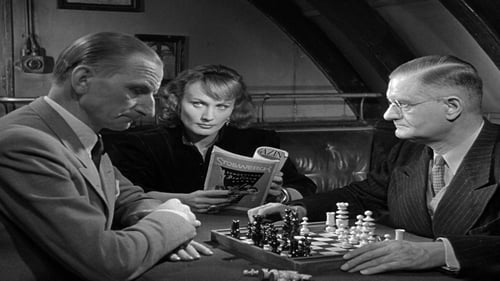
Director of Photography
A group of Nazis and sympathizers board a submarine bound for South America in the hopes of finding shelter.
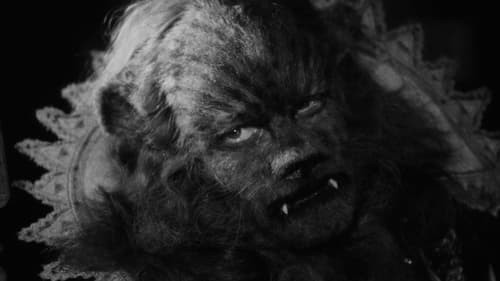
Director of Photography
The story of a gentle-hearted beast in love with a simple and beautiful girl. She is drawn to the repellent but strangely fascinating Beast, who tests her fidelity by giving her a key, telling her that if she doesn't return it to him by a specific time, he will die of grief. She is unable to return the key on time, but it is revealed that the Beast is the genuinely handsome one. A simple tale of tragic love that turns into a surreal vision of death, desire, and beauty.

Director of Photography
A 1946 war movie which tells the courageous efforts by French railway workers to sabotage Nazi reinforcement-troop trains.

Director of Photography
A brave bookseller raises his four daughters alone, all of whom he employs in his shop. They are especially interested in their sentimental stories. Rosine, the youngest, falls in love with Francis, fiancé of Edith, the eldest. But Francis pushes her away and Rosine announces that she is going to commit suicide. Bertrand, a young doctor, decides to stop her by watching over her. After a few adventures, everything finally works out. Edith keeps her fiancé, the father, from whom the adventure has been hidden, returns to the usual course of his life and Bertrand and Rosine find themselves alone.

Camera Operator

Director of Photography
Vénus aveugle (Blind Venus) is a 1941 French film melodrama, directed by Abel Gance, and one of the first films to be undertaken in France during the German occupation. Although the film is not set in any specified period, Gance wanted it to be seen as relevant to the contemporary situation in France. He wrote, "...La Vénus aveugle is at the crossroads of reality and legend... The heroine ... gradually sinks deeper and deeper into despair. Only when she has reached the bottom of the abyss does she encounter the smile of Providence that life reserves for those who have faith in it, and she can then go serenely back up the slope towards happiness. If I have been able to show in this film that elevated feelings are the only force that can triumph over Fate, then my efforts will not have been in vain."

Assistant Camera
A Russian emigrant sings in a Shanghai nightclub under the assumed name of Kay Murphy. All she dreams of is a peaceful life with her daughter Vera. But this is only a pipe dream as she has been forced by her former lover Ivan to work for a secret criminal organization, "The Black Dragon". Vera, who studies in a Hong Kong boarding-school, knows nothing about her mother's past. When Ivan, who is also Vera's father, resurfaces and blackmails Kay, the young woman is determined to fight back...
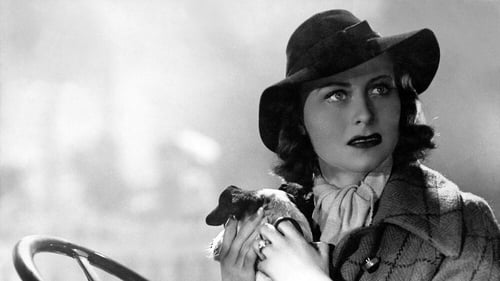
Camera Operator
Down a foggy, desolate road to the port city of Le Havre travels Jean, an army deserter looking for another chance to make good on life. Fate, however, has a different plan for him, as acts of both revenge and kindness render him front-page news.
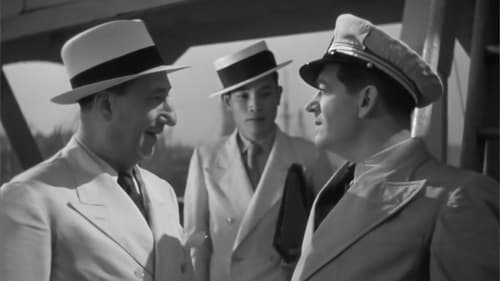
Camera Operator
Captain Justin Mollenard works for a company that sells armaments to the Far East. After an eventful stay in Shanghai, where he and his cargo are the victim of a malicious attack, he returns to his hometown of Dunkirk. Mollenard receives a frosty welcome from his wife Mathilde, who resents the way in which he has neglected his family for so many years. Mollenard’s only wish is to get back to sea as soon as he can, but a sudden heart-attack leaves him paralysed and entirely in his wife’s power...

Assistant Camera
A slippery femme fatale, a spy for Germany during the Great War, is sent to Thessaloniki in Greece and becomes involved with a man on the other side, a French military officer.

Director of Photography
A propaganda film of the communist party of France, showing how the comrades help the proletariat against the capitalists.
